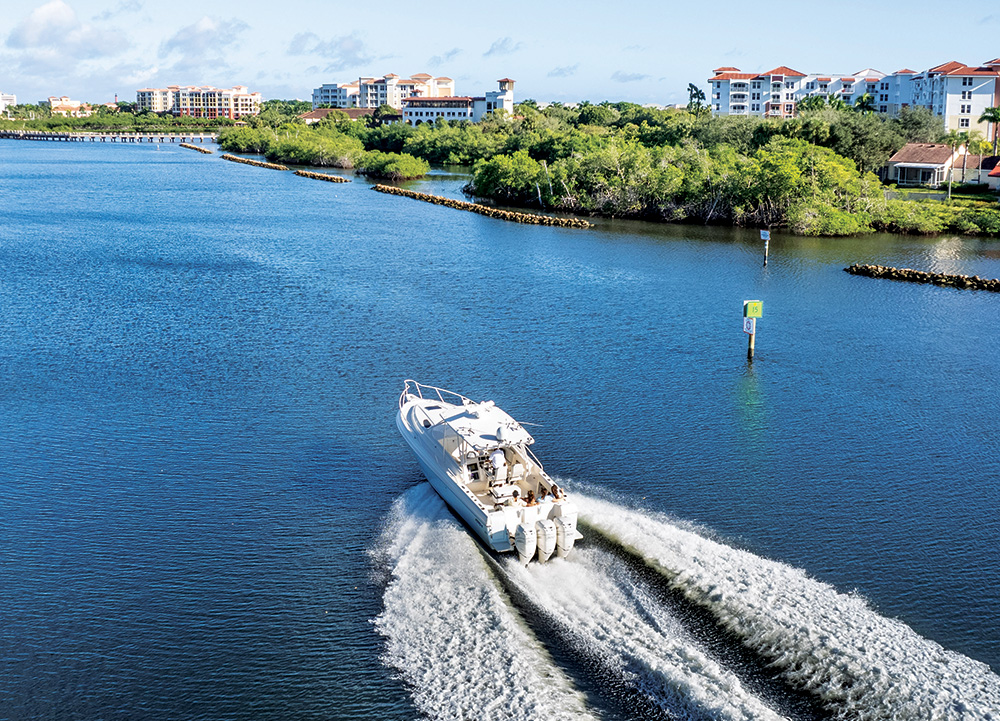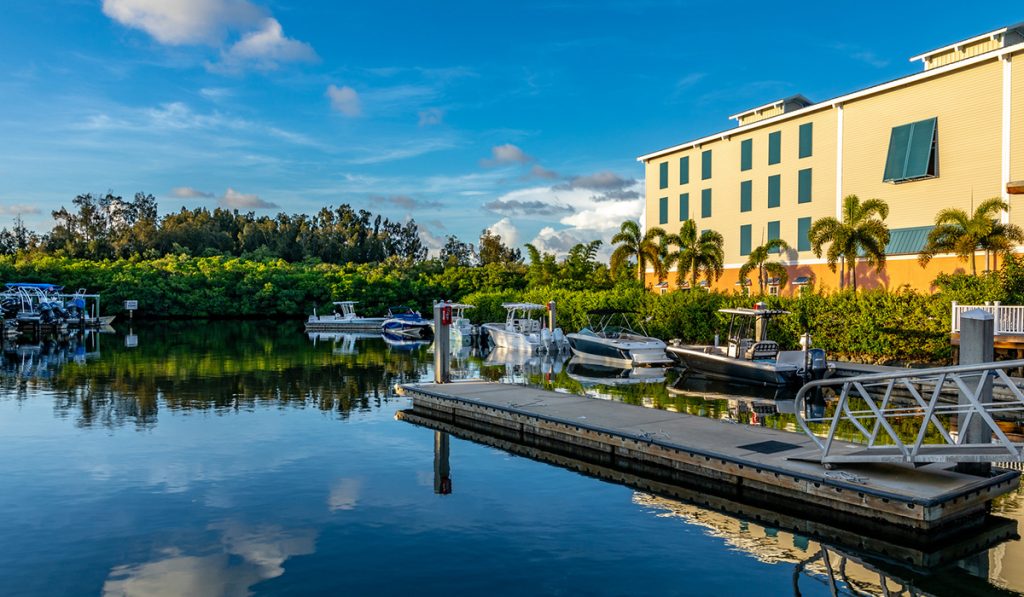One of the most important boating skills — and one that even seasoned boaters can brush up on — is properly reading channel markers. Whether you’re cruising into a marina, navigating an inlet, or heading home at sunset, understanding markers keeps you safe, off the sandbars, and exactly where you’re supposed to be.
Colors
The number one rule to remember is the classic phrase: Red, Right, Returning. When you are returning from open water (heading upstream or back into a harbor), the red markers should be on your starboard (right) side. Green markers should be on your port (left) side. These markers typically appear as buoys or fixed posts and are numbered — red markers have even numbers, and green markers have odd numbers. The numbers increase as you head inland.
If you’re heading out toward open water, the rule reverses. Red will be on your left, and green will be on your right.
Shapes
Pay attention to the shapes, too. Even if colors are hard to see due to glare or weather, the shapes help: red markers are typically triangular (“nuns”), while green markers are square or can-shaped. Dayboards (signs mounted on posts) follow the same pattern with red triangles and green squares.
You may also encounter junction markers, which indicate a split in the channel. These will display both red and green colors. The top color shows the preferred (primary) channel. For example, if red is on top, follow the red marker rule for the main channel.
Be Aware
Finally, remember that markers guide you through the safest and deepest water — but they don’t replace situational awareness. Always monitor your charts, depth finders, tides, and surroundings.
A little attention to channel markers goes a long way. Mastering them not only keeps your boat (and prop) in good shape but also makes you a more confident and courteous captain on the water.





